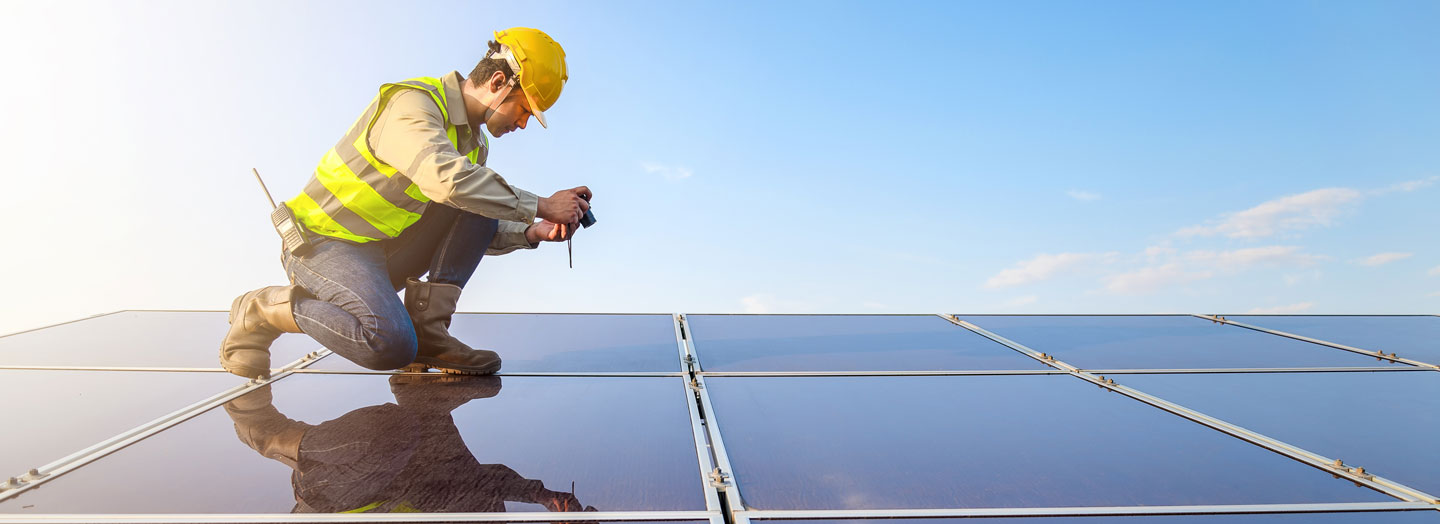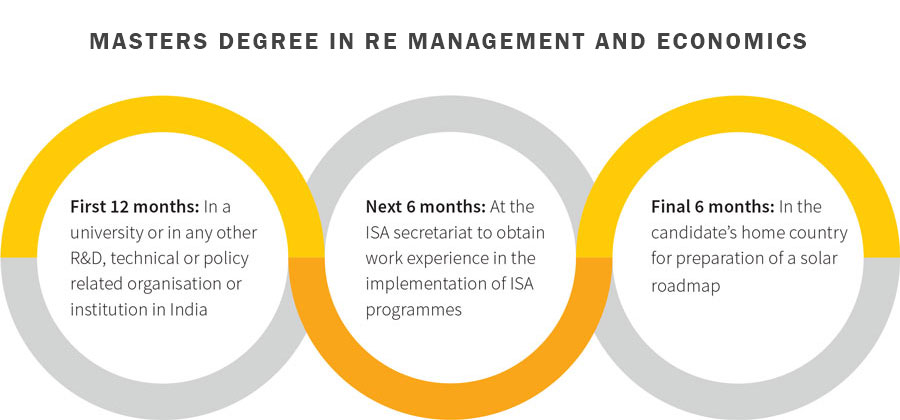
Projects
Solar Technology Application Resource Centre [STAR C] Initiative
STAR C is a stellar example of ISA’s capacity-building and institutional strengthening initiative in developing Member Countries. A priority strongly recognised in ISA’s Theory of Change. STAR C initiative aims to cultivate the desired human capacity and skills among a Member Country’s populace to encourage the significant undertaking of energy transition activities, creating jobs and ultimately contributing to the country’s economic growth.
What is a STAR Centre?
STAR Centres act as hubs of technology, knowledge, and expertise on solar energy and are a go-to place for a Member Country at the regional or country levels.
STAR Centre initiative caters to a Member Country’s capacity-building needs in one or a combination of ways:
· Building capable solar workforces
· Sensitising policymakers and financial institutions
· Incubating enterprises, standardising products and services
· Creating a knowledge repository on information related to solar energy
· Acting as an interface between countries sharing solar energy development experiences, undertaking joint research, promoting development & demonstration, capacity building, and creating regional & global networks
ISA is working towards setting up several STAR Centres, which serve as shared facilities within a particular region.
Drive investment: Engage financial institutions on the economic viability of solar projects, identifying and mitigating risks as well as leverage large-scale and low-cost finance for solar energy deployment leading to enhanced energy access and security of Member Countries.
Promote green jobs: By developing a pool of resources in countries lacking uptake of solar energy and raising the professional standard of those engaged in solar energy in member countries. Institute international certification facilitating the creation of cross-border job opportunities. Point of source for businesses to employ a certified pool of technicians and engineers.
Incentivise innovation and capable enterprises, standardised products & services.
Strengthen local capacity, thus helping in de-risking investments and making countries investment-ready.
A STAR Centre performs the following four primary functions:
Capacity Building
The STAR Centre develops custom training resources of standard quality and delivers competency-based training schemes on technical and financial aspects of solar products, applications, and services. The Centre provides training to government officials, technicians, engineers, and industry associations.
Testing
The STAR Centre undertakes testing of solar components and technologies based on national and international standards. In some countries, the STAR Centre can develop national standards based on international experiences.
Innovation
The centre collects and analyses existing knowledge and information about solar energy for dissemination to a larger audience. It will act as a knowledge management centre providing solar energy data, guidelines, analytical tools, relevant policies, and technical assistance to solar developers, decision-makers, and local institutions.
Knowledge Management
The centre also takes the lead in identifying and incubating start-ups or enterprises for integrating solar energy with income-generating activities. This would create a significant number of green jobs and enable the development of innovative ideas to address country-specific energy-related challenges. Customising solar energy based on local needs, the centre will create innovative products and services serving the local context and leading breakthroughs in scaling up off-grid and grid-connected solar installations.
The STAR Centres will take on one or more functions related to training, testing, innovation, and knowledge management. Based on the prominence of the function it plays, a STAR Centre can be categorised as a STAR Training Centre or a STAR Testing Centre.
Ambition 2030
ISA aims to have several STAR Centres across the globe acting as a shared facility at the regional and national level that provides capacity for the deployment of solar energy applications and research, business modelling, incubation, training, standardisation, and testing, engaging faculty members from different disciplines/institutes of excellence and provide/use shared facilities, labs, testing centre. ISA is pursuing several initiatives and strengthening existing partnerships to realise this goal. In the coming years, the role of these Centres will become more important than ever in scripting the energy transition narratives globally.
The Government of India has been supporting the ISA by providing training to master trainers in the field of solar energy through the Indian Technical and Economic Cooperation (ITEC) Scheme. The duration of the training is 21 days and all costs are borne by the Government of India. In 2018-2019, 133 candidates from 25 countries were trained at the National Institute of Solar Energy, Gurugram, with the support of the ITEC programme.
Know MoreThe Objective of the fellowship scheme is to contribute towards the long-term development needs of member countries, through the creation of a skilled and qualified professional manpower for management of solar energy projects, programmes and policies. Under this scheme, fellowships in the field of solar energy management will be offered to mid-career professionals from ISA countries for pursuing a master’s degree in renewable energy management and economics. They would be expected to contribute towards policy development in their home country which in turn will help ISA achieve its objectives.
21 candidates from 18 ISA Member countries are currently pursuing Masters degree in RE Management and Economics in the first batch that commenced on 22 July 2019.


Infopedia is an online platform dedicated to the dissemination of information, best practices and knowledge on Solar Energy. This project is supported by the EU and is likely to be launched in October 2019.
Infopedia Details
